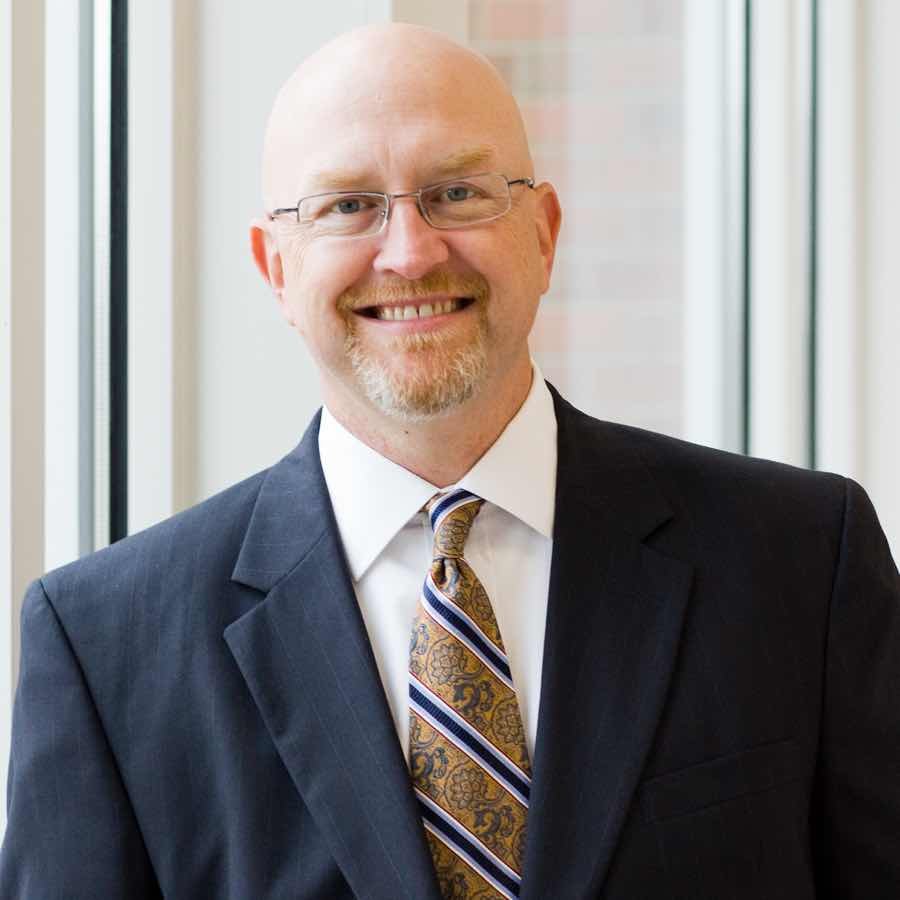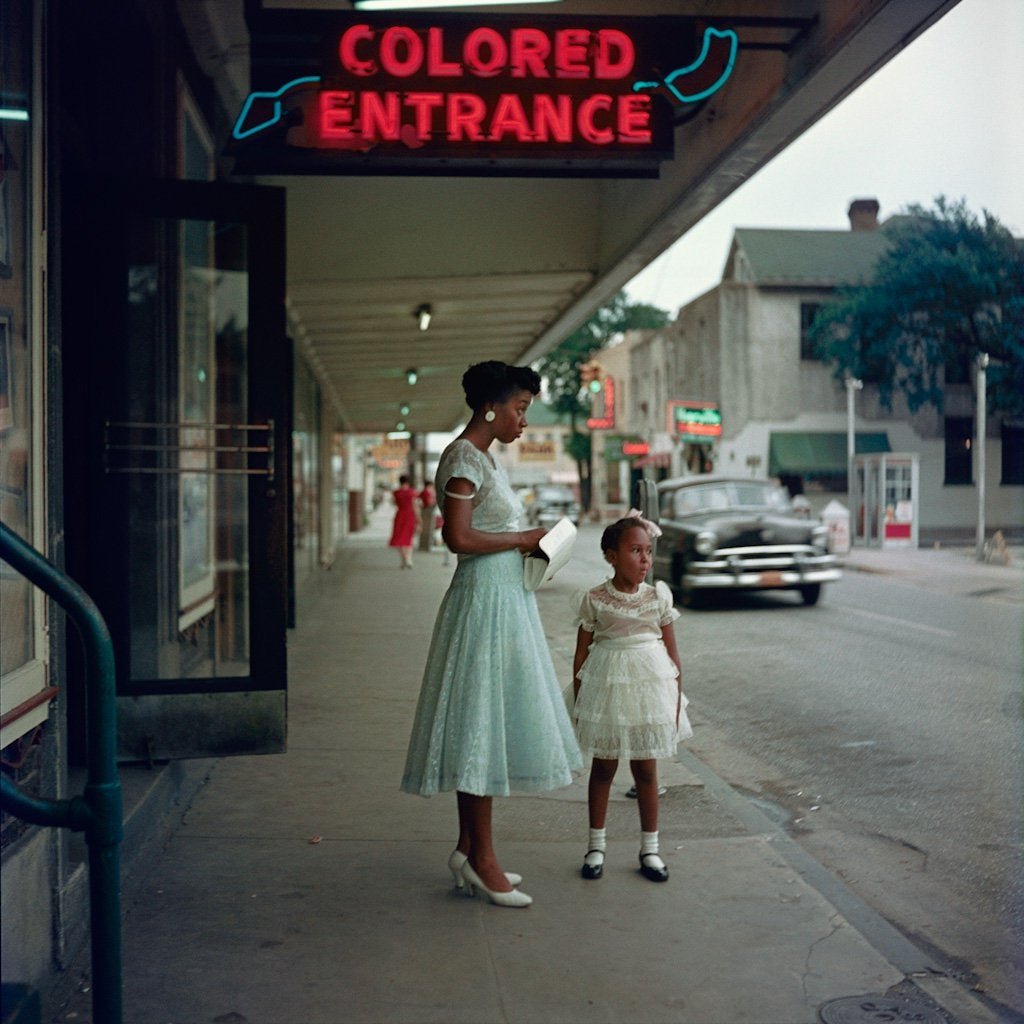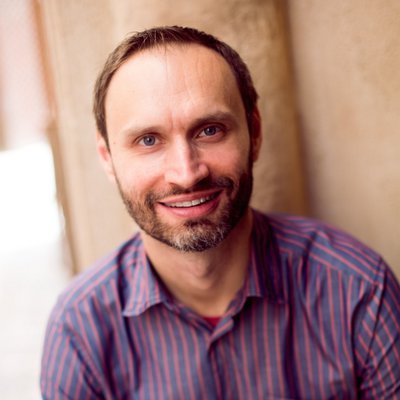Pastors Pursuing Diversity: An Interview with David E. Prince
Over the next few months, I will be conducting interviews with pastors who are pursuing diversity in their congregations. You can read more about the series in the introduction.
The questions are geared to help pastors and congregations in the pursuit of diversity in the church and all of life. All of the views, opinions, and suggestions are that of the interviewee. The goal of the series is to provide a resource from a variety of pastors, and therefore opinions may also vary.
(Due to length, please feel free to print interviews for future reading and referencing)
David E. Prince is the Pastor of Preaching and Vision at Ashland Avenue Baptist Church and an Assistant Professor of Christian Preaching and The Southern Baptist Theological Seminary. He has been a pastor at Ashland for ten years.
Have you always had a desire for a diverse or multiethnic church? If so, what has fueled this desire?
Kind of. I grew up in Alabama, the heart of Dixie, with parents who were not Christians but who were determined not to pass any notions of racial supremacy on to my sister or me. One of my closest friends growing up was an African-American. We spent elementary through high school together. We shared a love of reading and of sports. My dad loved baseball and thought every kid ought to have the opportunity to play the great game. He recruited my friend to play baseball in our Dixie Youth Baseball league. It was not until sometime later that I realized that my friend was, to my knowledge, the first African-American to play at our local ballpark (I think it was 1976); he was the Jackie Robinson of the National League in Montgomery, AL. My dad took a good measure of heat for bringing my friend to our league. It was a blessing last year when my friend sent a note that thanked my father for introducing him to organized baseball.
We had an elderly neighbor couple who were like like grandparents to me and my sister since our grandparents lived a good distance away. They gave us gifts at holidays and provided us candy when we saw them. I knew they were professing Christians and that he served as a deacon at his church. I have incredibly fond memories of living next to them. After I became an older adolescent, I learned that the deacon I looked to like a grandfather told my dad, “You can let that ni**** come over to your house and stay with you but he better not step foot in my yard.” I was not a Christian at the time but I was repulsed by what I now knew he had said. I was not sure why but it seemed terribly wrong.
I became a Christian when I was 19 years old and voraciously read my Bible as a new convert. One of the things that became apparent to me quickly was that racism was not just a negative aspect of society but was anti-Christian. As I became involved in church life in my community I began to notice that most churches were segregated. The schools that I attended growing up were about half African-American and half White. I went on a mission trip to Mexico with the church I was attending gave my testimony publicly for the first time. I had a hard time reconciling that we had a passion for seeing Mexicans come to faith and were willing to sacrifice and adapt our preferences on a mission trip to see that happen, but our church at home was segregated, and we weren’t doing anything about it.
When I was at seminary, I was taught the homogeneous unit principle in my evangelism and missiology courses and could never reconcile it with the Bible’s teaching that “in Christ” the church was “one new man” (Eph 2:15). When I asked how the homogeneous unit principle could be embraced in light of the biblical witness of the multi-ethnic glory of Gospel community (Eph 2:11-22, Rev 5, 7) I was told, “The homogeneous unit principle was simply a sociological observation. A fact that church leaders, evangelist, and missionaries ought to be aware of.” But it seemed to me that the principal was being used as a philosophy of ministry and not a sociological reality over which the Gospel triumphs. I was convinced then, and remain convinced, that the church should be a display of vertical (God to man) and horizontal (man to man) Gospel reconciliation. The first case of church discipline I was ever involved in as a pastor pertained to a man arguing in the church that interracial marriage was a sin.
How have you sought to build diversity within your congregation?
Our pastors preach with an awareness of the racial and ethnic diversity on display in Biblical redemptive history with an awareness that the entire human race was made in the image of God and share a common descent as the fallen children of Adam (Gen 1:27, 3:17, Acts 17:26, 1 Cor 15:22). I fear that many White evangelicals preach the biblical text as if it tells a White Western story. Our pastors emphasize that the glory of the Gospel is eschatologically on display in the multiethnic triumph of the church of Jesus Christ and that reality should shape our approach to ministry now. We stress that in a Christian worldview racial diversity is not something to be merely tolerated; it is something to be celebrated. Our church attempts to be intentionally multiethnic. We reject the notion that Christian ought to be colorblind. We want then to see diversity of color and celebrate it. Our differences are now seen in Christ and are markers of God’s expansive providential grace. The Gospel does not erase our cultural, racial, and ethnic distinctions, but rather reinterprets every aspect of our story in light of the Gospel story (Rev 21:24)
Apart from the preaching and teaching ministry we hired a full-time staff missionary to international students in the Lexington Metro area. With 65,000 college students in the Lexington Metro area the nations are literally coming to us. We developed a plan that we of reverse missions in which we reach international students while they are at university, disciple them, and send them back to their country as Christian missionaries. We consistently have 10 to 12 different ethnic groups represented in corporate worship at Ashland. We have baptized people from eight different ethnic backgrounds over the last few years. We have an annual International Thanksgiving dinner that has about 400 people attend and about 35 nations represented at the event. We have gained a reputation for ministering to internationals. So much so, that one day a representative of the University of Kentucky called the church and said, “We hear that Ashland likes to serve internationals and we have a student asking questions about Christianity. If we send the student over can you tell them about Jesus?”
We also have a strong emphasis on reflecting the Gospel through an adoption culture where the entire church is involved in the rescue and care of orphans. The result has been the adoption of children from all over the world and many families at Ashland who are gloriously transracial. Our adoption culture strengthens our church in many ways but one of the most profound ways is strengthening our theological commitment to the biblical Gospel. “Red, yellow, black, and white, they are precious in His sight” is visibly displayed each Lord’s day at Ashland as families gather for worship.
Do you have a diverse staff as well?
Not yet, we intend to be in the future.
What do you see as the benefit of having a diverse church?
One of the practical benefits is seeing first-hand the contributions to the Christian faith of brothers and sisters who are racially and ethnically distinct from you. I remember reading Called to the Ministry by Edmund Clowney and an assertion he made has really stuck with me. He said, “There is a disturbing possibility that you made need most the spiritual gifts of Christians least like yourself and age, social background, and race.” It is my guess that many congregations are impeded in sanctification because they spend most of their time with Christians who are culturally and ethnically just like them.
Another benefit is the opportunity to consistently observe the power of the Gospel on display in breaking down cultural barriers. The Gospel is able to destroy walls that legislation, political pressure, education, and social action have not been able to budge. A diverse congregation is a constant reminder that what binds us together is the Gospel of Jesus Christ and not simply our cultural class or preferences.
Tell us a little bit about yourself. What is your testimony? Did you grow up surrounded by diversity or has this been a newer conviction/desire?
I grew up in Montgomery, AL where the population is about half African-American and half White. My entire life centered on sports and my identity as an athlete. My participation in athletics meant that I was always had good friends who were African-American. For several years in middle school I was the only White guy on the school basketball team. I was full of pride and thought about the world only in terms of what benefited me. I did not think I needed anything or anybody. However, one day when I was 19 years old a friend invited me to church with him. He was not a godly guy. In fact, he was a drinking buddy. He had grown up going to church and invited me to go with him after a night out. The only other time I remember being in church prior to that was when my parents sent me to Vacation Bible School in the Summer.
In the course of the service the pastor read the passage “For all have sinned and fall short of the glory of God” (Rom 3:23). Hearing that infuriated me and I do not remember anything else about that service but when I got home I decided I was going to find a Bible and prove him wrong. The only Bible I could find was one my sister had with a picture of Jesus on the front and a zipper on the side. I found the book of Romans and began reading and by the time I finished Romans 3 for the first time in my life I knew that if I died that moment I would spend eternity in hell. Filled with fear and despair I keep reading and understood that my only hope was in Jesus who died for ungodly sinners. When I read, “For the wages of sin is death, but the free gift of God is eternal life in Christ Jesus our Lord,” (Rom 6:23) I cried out for God to have mercy on me on the basis of the life, death and resurrection of Jesus and he did.
My life was radically transformed and within 6 months of being converted I began struggling with a call to the ministry. I became a High School coach after college and ran from that call for about 6 years. However, while preparing to teach a Sunday School lesson on Isaiah 55, I surrendered to that call. When I told my wife, she responded, “Great. I have just been waiting on you.”
Perhaps you have only just begun this pursuit. Wherever you are in the journey, have you had any fears? Have you struggled with doubt that it is possible?
Our church is far from where we would like to be but we are thankful for God’s grace and bringing us to where we are and we look expectantly to the future. I have not had any fears in the pursuit of a multiethnic congregation because I believe our commitment to the gospel of Jesus Christ demands the pursuit. I do not think the pursuit of multiethnic gospel diversity ought to be considered an optional focus for the church. I think it is a Gospel issue and I think it is as possible as the Gospel is true. That is not to suggest that the pursuit of Gospel diversity in a church is easy and or that it won’t be congregationally and/or personally costly; it is to say that faithful ministry demands the pursuit of ethnic diversity.
Do you do anything unique with your service(s)?
We seek diversity in our congregational music and singing. On any given Sunday we may sing one of the ancient hymns of the faith or we may sing a song that our music pastor finished writing that morning. We have had traditional, contemporary, folk, Gospel, rock, and rap in our corporate worship services. We oppose what we refer to as musical snobbery and teach the congregation that when we sing in a style that they do not prefer it provides one of the best opportunities to worship in song because it reminds them that the work of the Gospel is far bigger than them and their cultural background. The application of that kind of thinking to the issue of racial and ethnic diversity in the church is obvious.
What are the demographics of your congregation (if you happen to know)?
Our city is 82 percent White, 13 percent African-American, and other nationalities making up 5 percent of our population. The community in which we meet to worship is about 95 percent White. When we gather for worship on Sunday a rough guess would be that the congregation is about 85 percent White, but there are about 10-12 ethnic groups represented.
If you could give any advice to a pastor who desires to pursue diversity within his congregation, what would you say to him?
Pursue congregational diversity because a belief the Gospel demands it—and not simply as a thematic occasional promotion of an isolated few.
If you were asked to speak to a congregation who was about to begin a series of initiatives in hopes of building a more diverse congregation what might you say to them?
My primary advice to a church moving in this direction is to pursue a culture that celebrates Gospel diversity rather than a segmented focus. In other words, do not have a diversity task force or ministry team dedicated to it, but pursue it congregationally because faithful Christian community demands it.
A great deal of the practical advice on how to move forward congregationally would depend on the church’s ministry context and history.
Did you actually do anything differently to pursue diversity? Do you think it is necessary?
Our commitment to diversity is a primary thrust of our entire ministry focus so there is a sense in which all of our ministry should work toward and not against promoting diversity. I do think it’s important for dominant culture White evangelical churches to talk about multiethnic ministry in a way that is not paternalistic toward ethnic minorities. The leaders of White evangelical churches need to self-consciously present themselves as those who desire to learn from the Christian contributions of ethnic minorities and not simply as their benefactor. Church leaders must acknowledge that simply saying that we would accept anybody who wants to attend our church is a cop-out. The real question is what price is the church willing to pay to see it happen (1 Cor 9:19-23).
How do you think that the Great Commission motivates a pursuit of diversity?
The Great Commission is a pursuit of diversity:
“And I will make of you a great nation, and I will bless you and make your name great, so that you will be a blessing. I will bless those who bless you, and him who dishonors you I will curse, and in you all the families of the earth shall be blessed” (Gen 12:2-3).
“Let the nations be glad and sing for joy” (Psalm 67).
“And Jesus came and said to them, “All authority in heaven and on earth has been given to me. Go therefore and make disciples of all nations, baptizing them in the name of the Father and of the Son and of the Holy Spirit, teaching them to observe all that I have commanded you. And behold, I am with you always, to the end of the age.” (Matthew 28:18-20).
‘After this I looked, and behold, a great multitude that no one could number, from every nation, from all tribes and peoples and languages, standing before the throne and before the Lamb, clothed in white robes, with palm branches in their hands, and crying out with a loud voice, “Salvation belongs to our God who sits on the throne, and to the Lamb!” (Rev 7:9-10).
Racism is an idol that must be repudiated by those who confess Jesus is Lord. The local church is an outpost of the Kingdom, a subversive cruciform community delivered from the self-destructive satanic idolatry that animates racial and ethnic hostility. Racial reconciliation is not simply a nice idea for Christians or an optional addendum to the Gospel. It is at the heart of the Gospel and the Great Commission. To lead a church as if racial reconciliation is optional or an unattainable ideal is to misunderstand the Gospel and Gospel ministry. Racial reconciliation demonstrated in the local church is a key, visible manifestation of the triumph of Jesus Christ over Satan’s parasitic Kingdom (Eph 1:19-2:22).
I, personally, believe diversity begins in the home. In other words, we are adopted into a new family and that family, the church, is beautifully diverse. We should seek not to have a face change in our churches but to have it in all of life—our lives should include those unlike ourselves. Do you agree? If so, how might you encourage members to build diversity in their homes?
Since the Great Commission is a pursuit of diversity and the church is “one new man” in Christ we challenge fathers to lead their families in utilizing their home as strategic ministry tool for evangelism and fellowship. Love for God and love for others are distinguishing marks of all genuine believers and this Gospel love should naturally express itself in Christian hospitality. Gospel love demands love of brother and love of neighbor and forbids followers of Christ from being respecters of persons (1 John 2:8-9, 4:20-21). We lead fathers to lead their families to live according to Philippians 2:3-4, “Do nothing from selfish ambition or conceit, but in humility count others more significant than yourselves. Let each of you look not only to his own interests, but also to the interests of others.” Living out Philippians 2:3-4, demands families transcend their comfortable cultural identifications to love, serve, and learn from people who are culturally and racially distinct from us.
Where can we learn more about you?
@davideprince (twitter)
RELATED CONTENT











Guest post by Isaac Adams
I thank God for folks who speak biblically about race. Whether it’s a black mom teaching her children that they also bear God’s image, or a white sister writing a prophetic blog post—there are many brothers and sisters take up this worthwhile battle…